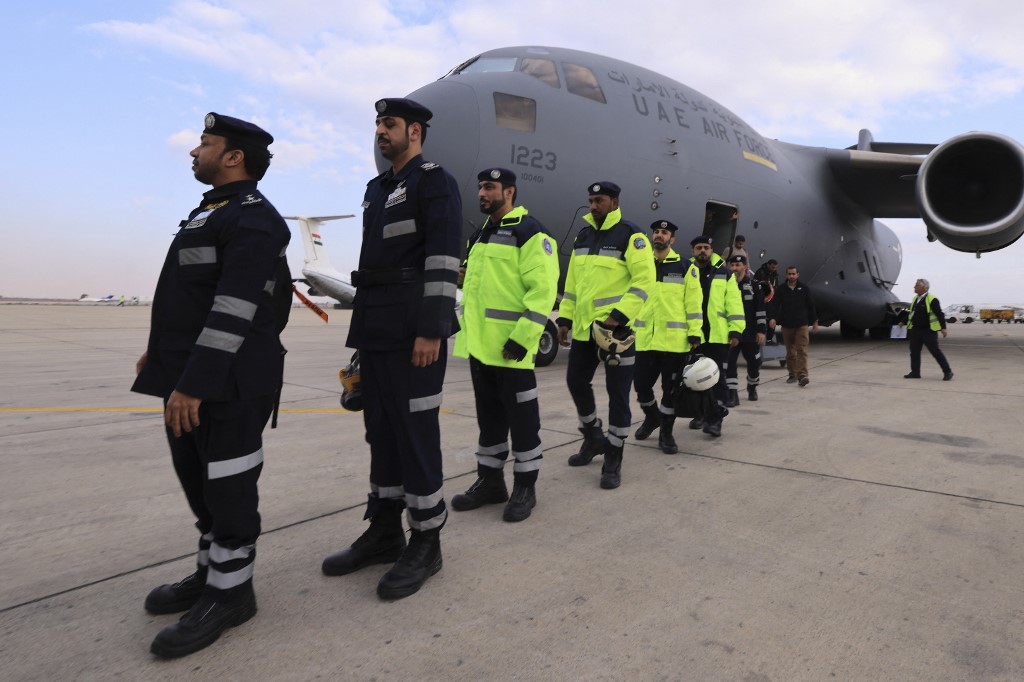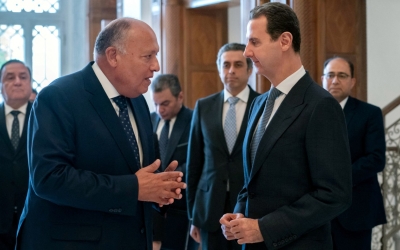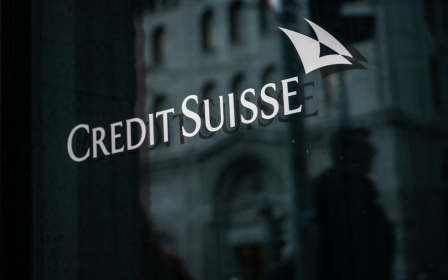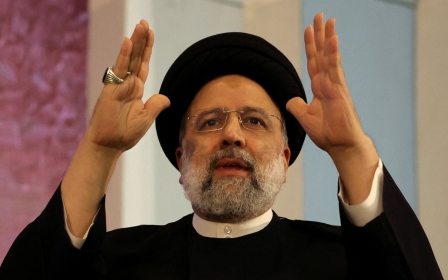Iran-Saudi deal set to bring Riyadh and Damascus closer together
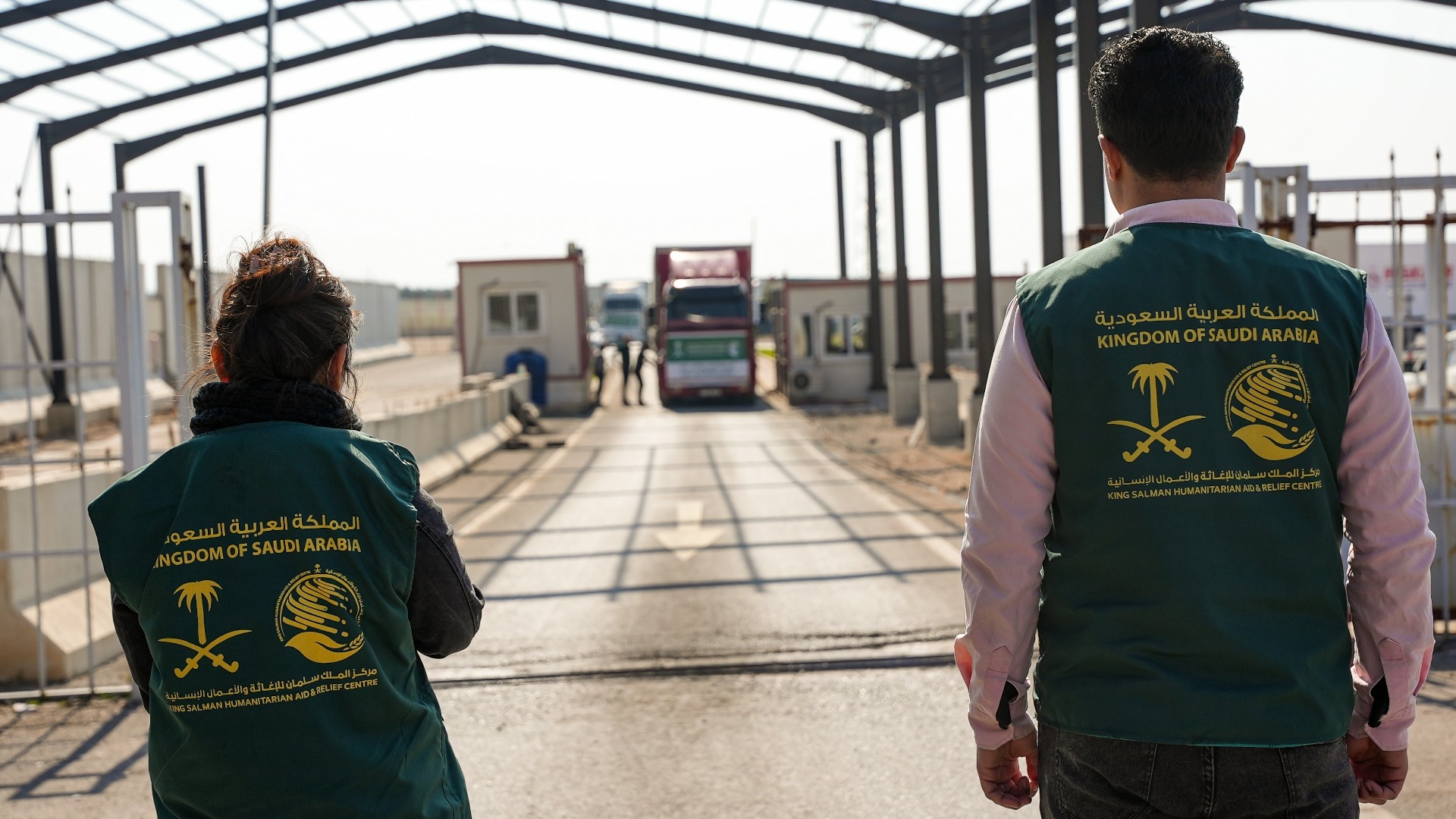
Barely days after Bashar al-Assad’s red-carpet treatment in Moscow last week and the Syrian president was on the move again, buoyed by an intense reconciliation push in the region.
On Sunday, Abu Dhabi was the destination - so often a crucial connector on a board of rapidly moving pieces - and UAE President Mohammed bin Zayed al-Nahyan awaited.
The visit was significantly timed just a couple of weeks after the landmark Chinese-brokered agreement between Saudi Arabia and Iran, viewed with much interest by Damascus.
A reduction of hostilities between Tehran and Riyadh touches much of the Middle East, but particularly Syria. The country has been a frontline battleground as the regional juggernauts have played out a bloody proxy war over the past decade.
With the two now on talking terms, one of the last hurdles of a Saudi-Syrian rapprochement has been removed, easing the path to a long-awaited re-engagement.
New MEE newsletter: Jerusalem Dispatch
Sign up to get the latest insights and analysis on Israel-Palestine, alongside Turkey Unpacked and other MEE newsletters
Deal to re-establish relations?
The Iran-Saudi pact is set to have profound repercussions on the regional level, and Syria is already witnessing the results.
Assad’s UAE visit was not simply a trip to boost regional legitimacy. The issue of the long-term goal of re-engagement with Saudi Arabia was firmly on the agenda.
A plethora of rumours and reports exploded onto the Arab media scene, with several narratives suggesting an impending Saudi return to Damascus, after ties were cut at the beginning of the Syrian war.
'The Saudi deal with Iran is definitely another obstacle out of the way of more re-engagement'
- Syrian official
Waddah Abd Rabbo, the well-connected editor-in-chief of pro-government Syrian newspaper al-Watan, has said the Saudis were gearing up to return.
“From my private sources: it was agreed to reopen the Saudi consulate within a few weeks, and the kingdom’s foreign minister will visit Damascus,” he recently posted.
Speaking to Middle East Eye, Abd Rabbo said: “A few days ago, an important meeting took place in Riyadh between Syrian and Saudi officials. It was the first political contact between the two and future steps to restore relations between the two countries were determined.”
Meanwhile, it was widely reported - yet not officially confirmed - that Maher al-Assad, the Syrian president’s brother and head of the feared Fourth Armoured Division, visited Saudi Arabia and received the kingdom’s conditions for normalisation.
Relations between the two countries soured immensely at the start of the anti-government protests in 2011. Saudi Arabia accused Syria of being an Iranian proxy and openly armed the rebels against Assad.
However, ties have warmed of late as other Arab countries have flocked to make peace with Damascus.
In the wake of the two earthquakes in Turkey, which killed more than 6,000 people in Syria, a Saudi plane carrying aid touched down at Aleppo airport with food and medical equipment, the first such event in 11 years.
Saudi officials at the airport said the operation “was carried out on the direct orders of Saudi Arabia’s King Salman bin Abdulaziz and Crown Prince Mohammed bin Salman”.
Meanwhile, Saudi Arabia’s foreign minister said increased engagement with Syria might pave the way for Damascus’s return to the Arab fold.
Prince Faisal bin Farhan Al Saud said: “An engagement in order to address these concerns is necessary. And that may well lead eventually to Syria returning to the Arab League.”
Syria was expelled from the Arab League after the civil war broke out, with the majority of its members backing the Syrian opposition.
A Syrian official, speaking on condition of anonymity, told MEE: “Things are getting closer.
"The Saudi deal with Iran is definitely another obstacle out of the way of more re-engagement. Saudi Arabia is a core Arab state.”
Earthquake hastens Syria’s return
As the tremors shattered Syria’s northern cities and towns, subsequent Arab solidarity was swift. An air bridge of assistance and aid was initiated that involved many countries and reinforced Syria and Bashar al-Assad’s place in Arab politics.
Damage from the earthquake in Syria was judged at around $5bn by the World Bank, and though the disaster has been devastating it has also fostered international sympathy for the war-torn country.
The UAE, for instance, sent money and agreed to deliver 400 prefabricated housing units to be distributed in various regions in cooperation with the Syrian Red Crescent.
Despite this, the Syrian official was reticent to credit the earthquake response with Syria’s growing ties with its Arab neighbours.
“Countries have been dealing with us under the table for years now. If the official political links are not there, then there are other avenues and sectors for cooperation,” the official said.
“It just happens that the situation is riper, the earthquake has nothing to do with it. We want to look to return to our natural role in the region. Arabs need a united Syria.”
The tip of the iceberg
Assad’s UAE visit is just the tip of an iceberg that stretches back almost five years, when pro-Assad forces conquered rebel territory around Damascus and the conflict cooled.
The UAE and Bahrain reopened their embassies in Damascus in 2019 and the following year Oman became the first Arab country to send an ambassador there.
In Abu Dhabi, Assad praised the “positive and effective role of the UAE to ensure strong relations between Arab countries”. Mohammed bin Zayed, meanwhile, said the UAE “stands with Syria, and will continue to show solidarity and stand with the Syrian people in what they were exposed to as a result of the war and the earthquake.”
The UAE is Syria’s most prominent global trade partner.
Similarly, just days after the earthquake, the speaker of the Jordanian parliament, Ahmad Safadi said: “We demand the return of Syria to the Arab fold. We demand that it return to being an active and influential member in the Arab decision-making process.”
Sameh Shoukry, Egypt’s foreign minister, also visited Damascus after the quake, telling Assad that Egypt “affirms solidarity with Syria”.
The shuttle diplomacy didn’t stop there. Last month, Assad flew to Oman, where he met Sultan Haitham bin Tariq in another red-carpet official visit.
Such actions have irked Washington, which has been a powerless onlooker. State Department spokesperson Ned Price told Axios: “The US is profoundly disappointed and troubled by Syrian President Bashar al-Assad’s visit to the United Arab Emirates this week, which it sees as an attempt to legitimise the embattled dictator.”
Syrian-Saudi intelligence links
As a restoration of relations seemingly approaches, it is worthwhile remembering that although the political relations between Damascus and Riyadh have been absent, intelligence links have continued.
Bashar al-Assad’s chief of General Intelligence, Hossam Louqa, attended the Arab Intelligence Forum in Cairo in November 2021, and was pictured next to his Saudi counterpart Khalid Humaidan, both smoking cigarettes and looking overly friendly.
The image was likely no accident, and has been perceived as a clear attempt to show warming ties between the two countries, and coincided with Egyptian efforts to unfreeze Syria’s membership in the Arab League. So far, no official statement has been released by Saudi Arabia or Syria over the meeting.
Before that, in May 2021, Humaidan visited Damascus, the first meeting of its kind since 2011.
Saudi’s acceptance of Syria has extended into other sectors. Also in May 2021, Syrian Tourism Minister Rami Radwan Martini travelled to Riyadh for a conference.
While normalisation with Damascus has been on the Arab agenda for years now, the Iran-Saudi agreement to de-escalate will no doubt serve as a catalyst for that process.
This article is available in French on Middle East Eye French edition.
Middle East Eye delivers independent and unrivalled coverage and analysis of the Middle East, North Africa and beyond. To learn more about republishing this content and the associated fees, please fill out this form. More about MEE can be found here.



